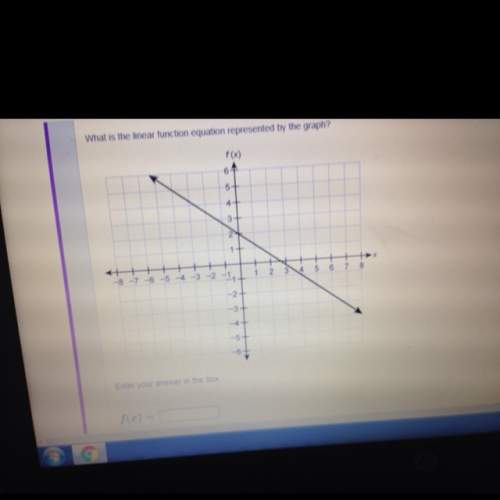
Mathematics, 13.03.2021 07:10 bandzswagg123
There are three consecutive odd integers such that six less than the product of the
square of the first and third numbers is equal to four more than the product of the
second and third. Find the three numbers.

Answers: 3


Another question on Mathematics

Mathematics, 21.06.2019 16:40
What is the ratio of the change in y-values to the change in x-values for this function? a) 1: 13 b) 2: 5 c) 5: 2 d) 13: 1
Answers: 3

Mathematics, 21.06.2019 20:00
Which part of a 2-column proof is the hypothesis of the conjecture? a) given b) reasons c) prove d) statements ! i think it's b but i'm not quite
Answers: 3


You know the right answer?
There are three consecutive odd integers such that six less than the product of the
square of the f...
Questions

Mathematics, 14.04.2021 21:30

English, 14.04.2021 21:30

Mathematics, 14.04.2021 21:30

Mathematics, 14.04.2021 21:30

Mathematics, 14.04.2021 21:30

Geography, 14.04.2021 21:30


Mathematics, 14.04.2021 21:30


Mathematics, 14.04.2021 21:30

Mathematics, 14.04.2021 21:30





Chemistry, 14.04.2021 21:30


Mathematics, 14.04.2021 21:30





